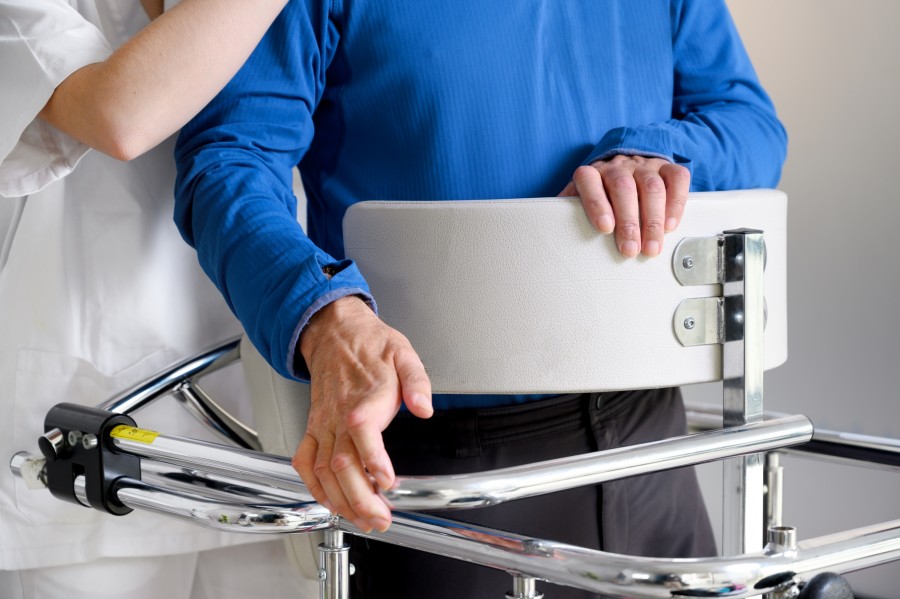News and Article
Get to know ALS (Amyotrophic Lateral Sclerosis) disease

What is ALS?
ALS (Amyotrophic Lateral Sclerosis), is a progressive neurodegenerative disease that affects nerve cells in the brain and spinal cord.
A-myo-trophic comes from the Greek. "A" means no. "Myo" refers to muscle, and "Trophic" means food - "No muscle food." When the muscles do not exist or do not get food, then the muscles will shrink or be called "atrophy". "Lateral" identifies an area in the spinal cord that is where nerve cells signal and control the muscles. When this area suffers a setback, scarring or hardening ("sclerosis") is formed in the region. Thus, it is referred to as Amyotrophic Lateral Sclerosis.
Motor neurons (motor nerves) stretch from the brain to the spinal cord and from the spinal cord to muscles throughout the body. Progressive degeneration of the motor nerve in ALS eventually leads to the death of these nerve cells. When the motor nerve dies or does not function, then the brain loses the ability to start and control muscle movements. With this progressive loss of ability, people may lose the ability to speak, eat, move, and breathe.
This disease arises without knowing the cause or also called "sporadic". This form is the most common and can occur in anyone and anywhere. The second form is called FAMILIAL ALS which is in its lineage there are those who suffer from ALS. So, in the family there is a 50% chance of each offspring inheriting a gene mutation and be able to develop the disease.
Symptoms and Diagnosis
Symptoms
ALS is a disease whose symptoms arise gradually. Early symptoms of ALS can vary greatly in different people. A person may have difficulty grasping a pen or lifting a coffee cup, while others may experience a change in tone of voice while speaking. The rate of development of the disease can vary greatly from one person to another. Even so, the average survival time of ALS sufferers is three to five years, some people can live up to 10 years or more. Symptoms can begin in the muscles that control speech and swallowing or in the hands, arms, limbs or legs. Not everyone with ALS experiences the same symptoms or the same sequence or pattern of development. However, progressive muscle weakness and muscle paralysis, are commonly experienced by all sufferers.
The gradual onset of progressive muscle weakness - which is generally painless - is the most common early symptom in ALS. Other early symptoms vary but can include frequent tripping, something being held often falls, abnormal fatigue on the arm and/or on the legs, unclear speech, muscle cramps and twitches, and/or periods of uncontrollable laughing or crying. When the respiratory muscles are affected, it is ultimately necessary continuously for respiratory aids. Since ALS only attacks motor neurons, the senses of vision, hearing, touch and taste and smell are not affected. For most sufferers, the eye muscles and bladder muscles are generally unaffected.
Diagnosis
ALS is a difficult disease to diagnose. There is not a single test or procedure to establish an ALS diagnosis. Diagnosis is established based on clinical examinations and a series of diagnostic tests. This is to get rid of other diseases with the same symptoms. Comprehensive diagnostic checks cover most, if not all, the following procedures:
- Electrodiagnostic examination including electromyography (EMG) and neural conduction speed.
- Blood and urine examination including high resolution serum protein electrophoresis, thyroid and parathyroid hormone levels and 24-hour urine collection for heavy metal.
- Spinal tap.
- X-rays, including magnetic resonance imaging (MRI).
- Cervical spine myelogram.
- Muscle and/or nerve biopsy.
- A thorough neurological examination.
These tests are carried out at the doctor's discretion and usually based on the results of other diagnostic tests and physical examinations. There are several other diseases that have some of the same symptoms as ALS, and most of these other diseases are treatable.
Therefore, if you experience symptoms as described above, it is highly recommended to see a doctor in order to make sure.
Recent years have brought many new scientific understandings regarding the physiology of this disease. Scientists have made significant progress in learning more about the disease. In addition, people with ALS may experience a better quality of life by participating in support groups or ALS communities that already exist here.
This paper cannot replace the role or advice of health workers. All decisions you make should be discussed with health professionals, with regard to your specific medical needs.
Writer: Alex Pattinasarany
Source:
- https://www.als.org/understanding-als/what-is-als
- https://www.ninds.nih.gov/Disorders/Patient-Caregiver-Education/Fact-Sheets/Amyotrophic-Lateral-Sclerosis-ALS-Fact-Sheet#:~:text=Amyotrophic%20lateral%20sclerosis%20(ALS)%20is,symptoms%20get%20worse%20over%20time
- https://www.mayoclinic.org/diseases-conditions/amyotrophic-lateral-sclerosis/symptoms-causes/syc-20354022
